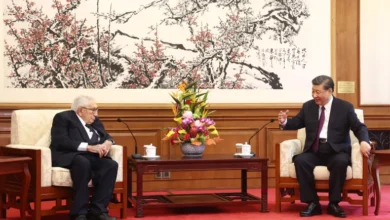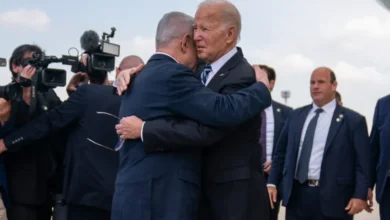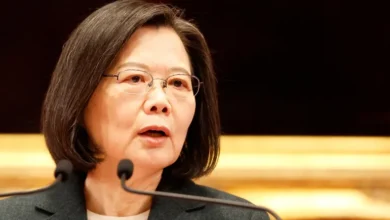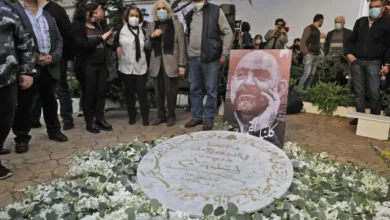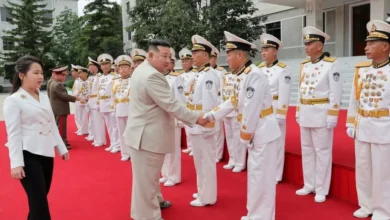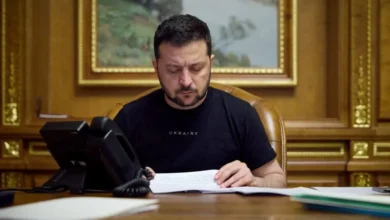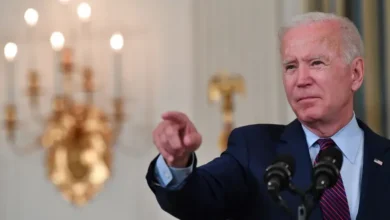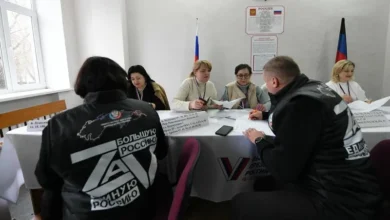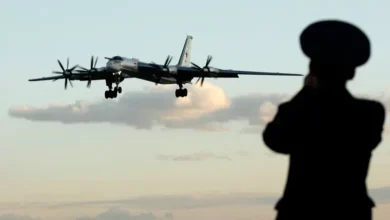Indian police fire tear gas as protesting farmers march on Delhi
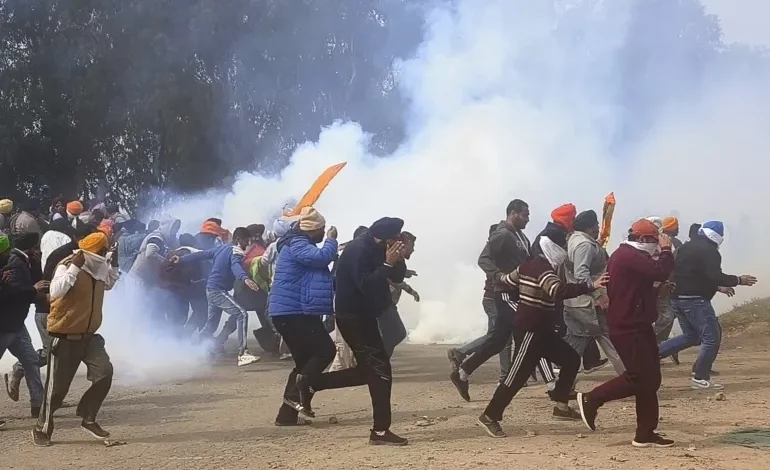
Indian security forces have fired tear gas in a bid to stop thousands of farmers marching on New Delhi after talks with the government failed.
Local broadcasters showed thick clouds of tear gas on Tuesday, as police sought to disperse protesters near Ambala, some 200km (125 miles) north of the capital. The farmers are demanding that the government offer greater support and guarantees.
Police sealed multiple entry points into New Delhi by erecting barriers of barbed wire, spikes and cement blocks. Large gatherings in the capital have been banned and internet services suspended in some districts of the neighbouring Haryana state.
“We do not want to break any barricades. We want resolution of our issues through dialogue. But if they [the government] do nothing then what will we do? It is our compulsion,” Sarwan Singh Pandher, a leader of one of the farmer groups, told reporters following the breakdown of talks.
Negotiations between union leaders and government ministers on Monday failed to produce consensus on the farmers’ key demands, which include higher support, guaranteed prices for their produce, and forgiveness for loans, as well as a clutch of other concessions.
Pandher claimed that the government, which three years ago had promised to double farmers’ income, had refused to make a decision on the demands.
Indian broadcasters showed columns of hundreds of tractors moving towards the capital from the surrounding states of Punjab, Haryana and Uttar Pradesh.
Farmers in India have political heft due to their sheer numbers. The threat of renewed protests comes ahead of national elections that are likely to start in April.
Two-thirds of India’s 1.4 billion people draw their livelihood from agriculture, accounting for nearly a fifth of the country’s GDP, according to government figures.
The “Chalo Delhi” march echoes protests in 2021 when farmers breached barricades and marched into the city on Republic Day.
That demonstration was part of a yearlong protest against an agricultural reform bill; the biggest challenge so far to Prime Minister Narendra Modi’s government that took power in 2014.
Tens of thousands of farmers then set up makeshift camps. At least 700 people were killed during the protest.
The pressure was such that Modi pushed through the repeal of three contentious laws that farmers claimed would let private companies control the country’s agriculture sector.
The government at that time said it would set up a panel of farmers and government officials to find ways to ensure support prices for all farm produce. Multiple meetings since then have made no progress.
Thousands of Indian farmers die by suicide every year because of poverty, debt and crops affected by ever more erratic weather patterns caused by climate change.

